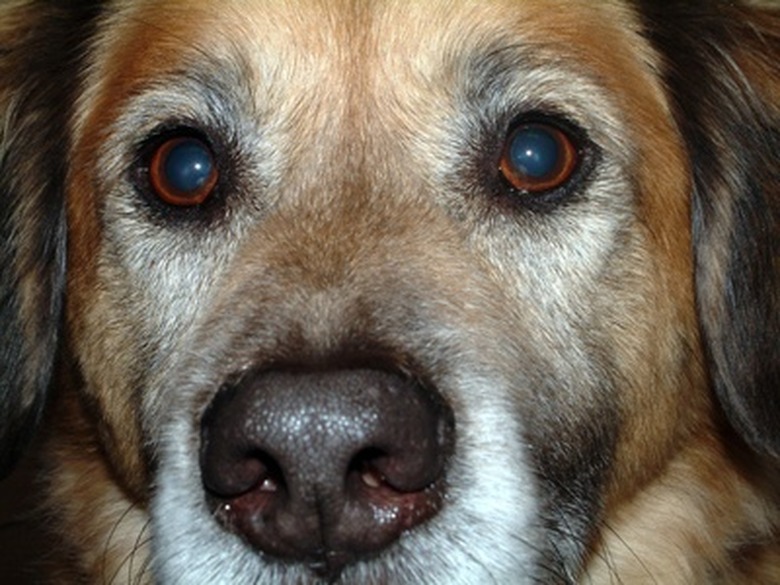Symptoms Of Gopher Poison In Dogs
Several types of gopher poison are on the market for homeowners to use. The most common agents used against all rodents, including gophers, are anticoagulants. These work by preventing the blood from clotting. The Merck Veterinary Manual states "rodenticides are the most frequent cause of poisoning in pets." Dogs that eat the poison directly, or eat gophers that ate the poison, can also be poisoned. These are fast-acting poisons, taking only days to be effective. If you notice symptoms of poisoning in your dog, treat it as an emergency.
Lethargy
Lethargy
One of the first signs that a dog shows may be nondescript and not easily connected to eating gopher poison. He may seem less active than usual. He may appear to be depressed and reluctant to eat or drink, even refusing favored treats. Hay may have vomiting and diarrhea.
Weakness
Weakness
In more advanced stages, a mild to severe weakness will set in. Dogs may stumble or be unable to walk at all. They may have a loss of muscle coordination. Your dog might have labored breathing as if she just went for a run.
Signs of Blood Loss
Signs of Blood Loss
Internal bleeding caused by the poison in dogs may not be obvious unless your dog has an open bleeding wound. Subtle signs of blood problems are feeling cold to the touch and pale (rather than dark pink) gums. The dog may also have nosebleeds or blood in the urine or feces. Dark tarry blood in the feces means the bleeding is occurring farther up the digestive tract. According to the Mar Vista Animal Medical Center "signs of bleeding in more than one body location are a good hint that there is a problem with blood coagulation and appropriate testing and treatment can be started."
Clinical Signs
Clinical Signs
Clinical symptoms are more likely to be detected by a veterinarian. According to "The Merck Veterinary Manual" these symptoms will "reflect some manifestation of hemorrhage, including anemia, hematomas" and other blood-related problems. Other clinical symptoms listed include blood surrounding the lungs and bleeding in the eye. These are often seen at the end stages of the poisoning process.
Treatment
Treatment
Veterinarians will use a combination of treatments to stop the effects of gopher poison. If the poison was recently ingested (within a few hours), the vet may give medication to induce vomiting or give a medication that will absorb the poison, preventing to body from absorbing the poison as it passes through. Most veterinarians will also give a large dose of Vitamin K, which helps the blood clot. Vitamin K therapy may be needed for several weeks.
Always check with your veterinarian before changing your pet's diet, medication, or physical activity routines. This information is not a substitute for a vet's opinion.
References
- "The Merck Veterinary Manual"; Editor Susan E. Aiello, B.S., D.V.M., E.L.S.; 1997
- Mar Vista Animal Medical Center: Rat Poison
